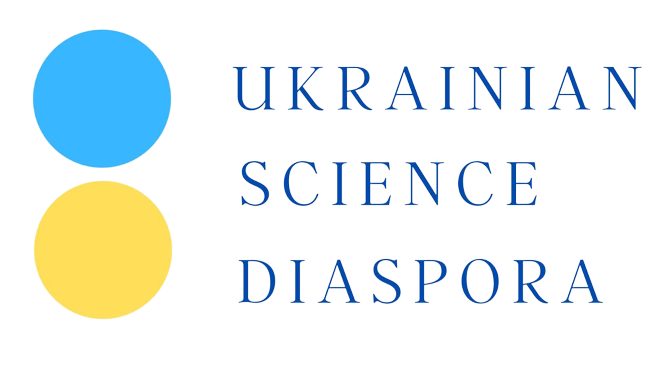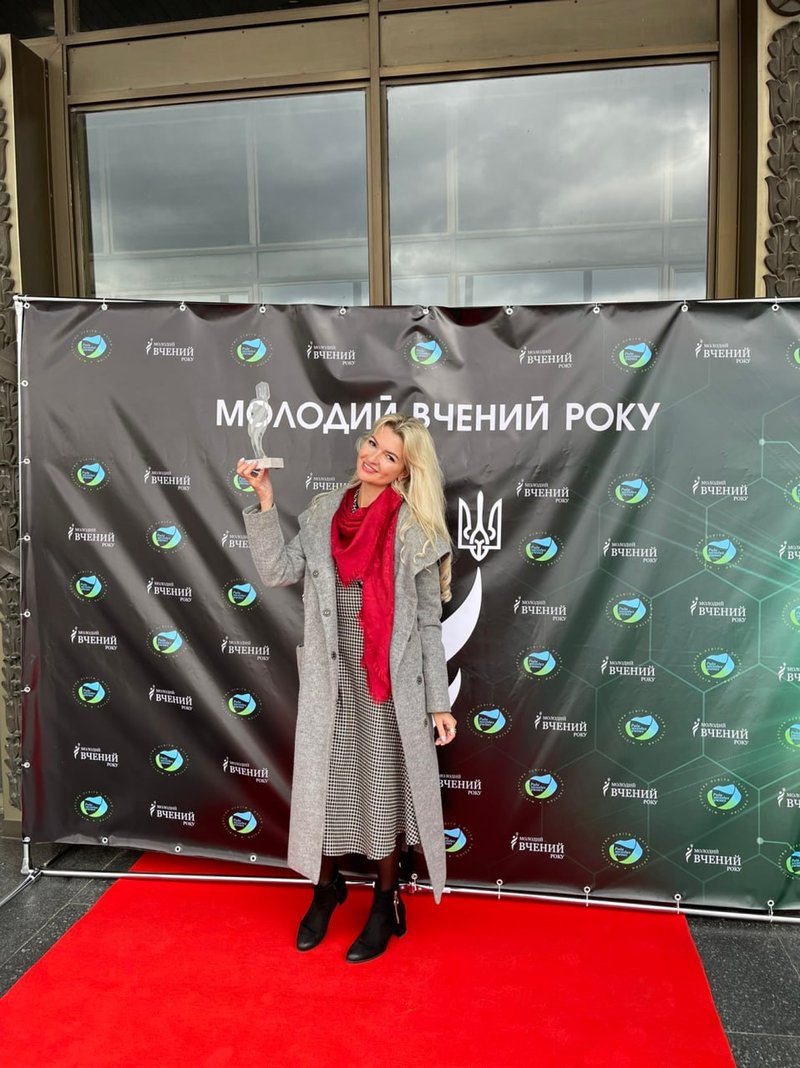My name is Alona Klochko. I am a doctor of legal sciences, professor of the International Relations Chair of the Law Faculty of the Sumy National Agrarian University (Sumy, Ukraine). Also, today I am the research professor at the Department of Criminal Law and Procedure of the Law Faculty of the University of Neuchatel (Neuchatel, Switzerland). I would like to share my experience that it so happened that I, a scientist from Ukraine, work at an educational institution in Switzerland, what challenges and difficulties I had to overcome along the way and how my Swiss colleagues helped me in a new team and state.
I have more than 15 years of scientific and pedagogical experience. In Ukraine, I built a fairly successful scientific career, I have more than 120 scientific works (in Ukrainian and English, including in highly rated publications), I teach legal disciplines in English and supervise the scientific work of graduate students. In 2020, she became a laureate of the annual “Young Scientist of the Year” competition in Ukraine in the "International Relations" category. Everything was good and could have been even better if on February 24, 2022, russia had not launched a full-scale invasion and the territory of Ukraine. Our city of Sumy was one of the first to feel this invasion in Ukraine in 2022, as we are located about 30 km from the border with russia (the city of Kursk).
Terrible morning and information from the daughter's teacher in the school's Viber group: "Dear parents! The children are not going to school today, it seems that something terrible has started. » The following weeks were more terrible than anything that could only be imagined in a terrible dream. Airstrikes, sirens and shelters...constant emotional tension, fear that...I cannot protect my nine-year-old daughter Marharyta from all this. The decision to go to another country came on the day when the "green corridor" for evacuation was opened in the Sumy region. It was the beginning of March 2022. After quickly gathering documents, a laptop and some basic things, my daughter and I set off to nowhere. There was no plan at all. There were thoughts - we need to go to friends ... 2-3 weeks and everything will be finished, we will return to normal life in Ukraine.
First, we stayed for a few days with our colleague from Chernivtsi National University - Olena Ivanivna Yushchyk (whom I am sincerely grateful for her help), then outside of Ukraine - with a beautiful Romanian woman, Rodika (I am sincerely grateful to her for her hospitality). During the week of stay in Romania, we agreed with distant relatives from Switzerland that we will be able to stay with them for some time. And they went further across countries and borders on a long way. It was probably one of the most difficult journeys in my life – to overcome about 3,000 km from the city of Sumy, across the border with Romania to distant Switzerland, alone with my daughter. Switzerland is a completely new country for me, which I have not visited before. Why here? Because it was here that these distant relatives were, who offered temporary help with housing. My daughter and I are infinitely grateful to them for their warm welcome and help. After several days of staying in the country in a beautiful Swiss village, I decided to look for the nearest universities out of curiosity.
And is it possible, for example, simple internships, advanced training? Why not if we are here, and we need to continue scientific activity, especially since I am the guarantor of the specialty "International Law" at the Sumy National Agrarian University. The nearest educational institution (at a distance of 40 km) from our small Swiss village turned out to be the University of Neuchâtel. On the university's website, I found information that the university is open to help students and scientists from Ukraine. Since I had a resume in English, I decided to send it to the e-mail address indicated on the website with a cover letter about whether I could do a professional internship at the Faculty of Law of the University of Neuchâtel. The next day I was contacted by a responsible employee to arrange an online meeting on the Webex platform. Our communication was in English. However, I would like to note that even to this day the language issue is very special for me. Switzerland has 4 official languages, and English is not among them.
Most working people in Switzerland speak four, five, or even six languages. So my daughter and I started learning French and actively attended language courses. After talking with the responsible employee, I learned that the University of Neuchâtel cooperates with the Scholars at Risk program, and current scientific research is supported by the Swiss National Science Foundation. The next step was an interview with the administration of the faculty, the dean, and deputy deans regarding the possibility of conducting my research on the Faculty of Law of the University of Neuchâtel. We discussed these possibilities, the field of my scientific interests and decided, with the support of two professors and the dean of the faculty, to send an application to the Swiss National Science Foundation to support my research on the criminalization of land relations, research on the experience of Ukraine, Switzerland and EU countries. My draft submission was approved by the Swiss National Science Foundation last month. Currently, I also continue to work with my students from Ukraine online.
Also, an important stage of our stay in the country was the registration of the S status - the status of temporary protection, which provides for the return to our native country, but allows us to work officially and our children to go to school during our stay in Switzerland. Drawing up documents for myself and my daughter took some time, but did not pose any particular difficulties. After receiving the S status, I was contracted to work for a year at the Department of Criminal Law and Procedure of the Faculty of Law of the University of Neuchâtel. At the same time, the university was located at a distance of 40 km from the place where we stayed with our daughter. Perhaps this would not be a big problem, but everything is tied to the daily routine at the daughter's school. In this sense, Swiss schools are very different from Ukrainian schools. For example, you have to take your child to school at 8:15 a.m., take him home for lunch at 11:45 a.m., bring him to school again at 1:45 p.m. and pick him up again at 3:20 p.m. The question arose - how can this mode be adapted to work, which is 40 km from the school where the daughter goes? I think this is one of the problems that affects the employment opportunities of Ukrainians in general (in particular, if we are talking about a woman who is alone with a child or children) who has arrived in a foreign country. In addition, my daughter also continues to study online and does homework in a Ukrainian school.
So I decided to look for housing for rent in Neuchâtel. As it turned out, this is a real problem for Switzerland. Rental is possible for a period of at least one year, with a copy of the employment contract and three letters of salary in Switzerland. This moment was really not easy. However, after all the documents were prepared, I was able to find a small separate apartment near the university and even change my daughter's school. Therefore, a major obstacle to the realization of the scientific ambitions of scientists in the new state is the solution of everyday issues.
At the University of Neuchâtel, I met many wonderful people, to whom I am infinitely grateful for the experience and practical development I gained. I systematically participate in various scientific events at the university - conferences, workshops, and if there are opportunities, I also involve students from SNAU in separate online events. I had the opportunity to attend the defense of the applicant's dissertation research to compare the relevant procedures in Ukraine and Switzerland. I also have a workspace in the faculty office, access to the excellent law faculty library, which I use to prepare for my upcoming university lectures. While working at a Swiss higher education institution, I wrote several scientific publications, as well as grant applications for research aimed at the post-war recovery of Ukraine in the context of reforming certain legal institutions using leading foreign practices. The results of work in a foreign primary school depend on us and, of course, on the extent to which we, Ukrainian scientists, are able to quickly adapt to new conditions, learn (even if we already have some experience), be balanced and grateful. It is logical that knowledge of the language is required - at least English, the ability to process information, a professional resume.
I would like to sincerely thank the administration of the University of Neuchâtel in the person of Rector Kilian Stoffel, vice-rector Recherche Felix Kessler. I also sincerely thank the Dean of the Faculty of Law - Prof. Olivier Hari, as well as Prof. Andre Kuhn and especially Dr. Luc Gautier for the support of Ukrainian scientists in such a difficult time for us, for the hospitality, openness, kindness and cooperation that I met in the walls of the University of Neuchâtel. In addition, I sincerely thank other colleagues from the university who, with their support and professional advice, contribute to the fact that Ukrainian scientists will be able to transfer and implement the acquired experience in the Ukrainian educational and scientific environment in the future. Dear Switzerland, we sincerely grateful for the invaluable help to Ukrainian citizens in such a difficult time for our country!

